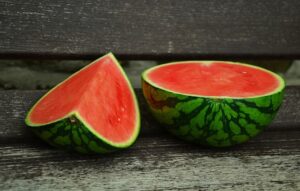Introduction
Refried beans are a popular staple in Mexican cuisine, known for their rich and creamy texture. They are made by cooking and mashing pinto beans, often with added seasonings and fats. While refried beans are primarily consumed for their taste and versatility, many people also wonder about their nutritional content, specifically the protein content. In this article, we will explore how much protein is in refried beans and discuss their overall nutritional value.
Protein Content in Refried Beans
Refried beans are a good source of plant-based protein. The exact amount of protein in refried beans can vary depending on the recipe and brand, but on average, a 1-cup (240g) serving of refried beans contains around 14 grams of protein. This protein content makes refried beans a valuable addition to a vegetarian or vegan diet, as they provide a significant amount of the daily recommended intake of protein.
Benefits of Protein in Refried Beans
Protein is an essential macronutrient that plays a crucial role in various bodily functions. It is necessary for the growth, repair, and maintenance of tissues, as well as the production of enzymes, hormones, and antibodies. Including protein-rich foods like refried beans in your diet can have several benefits:
1. Muscle Building and Repair: Protein is essential for building and repairing muscles. It provides the necessary amino acids that contribute to muscle growth and recovery, making refried beans a suitable option for individuals who engage in regular physical activity or strength training.
2. Satiety and Weight Management: Protein is known to promote feelings of fullness and reduce appetite, which can aid in weight management. Including refried beans in your meals can help you feel satisfied for longer periods, potentially reducing the overall calorie intake.
3. Nutrient Density: Refried beans not only provide protein but also contain other important nutrients such as fiber, vitamins, and minerals. This nutrient density makes them a valuable addition to a balanced diet, contributing to overall health and well-being.
Other Nutritional Components in Refried Beans
In addition to protein, refried beans offer several other nutritional components that contribute to their overall value. These include:
1. Fiber: Refried beans are an excellent source of dietary fiber. A 1-cup serving can provide around 14 grams of fiber, which is approximately half of the recommended daily intake. Fiber is essential for digestive health, promoting regular bowel movements and aiding in the prevention of constipation.
2. Carbohydrates: Refried beans are a carbohydrate-rich food, providing a good source of energy. They contain both simple and complex carbohydrates, which are broken down into glucose, the body’s primary source of fuel.
3. Vitamins and Minerals: Refried beans contain various vitamins and minerals, including folate, iron, magnesium, and potassium. These nutrients are essential for maintaining overall health and supporting various bodily functions.
Conclusion
Refried beans are a delicious and nutritious food that can be a valuable addition to a balanced diet. They are a good source of plant-based protein, providing around 14 grams of protein per 1-cup serving. In addition to protein, refried beans offer fiber, carbohydrates, vitamins, and minerals, making them a nutrient-dense choice. Whether you follow a vegetarian or vegan diet or simply enjoy the taste of refried beans, they can contribute to your overall nutritional needs.
References
– Mayo Clinic. (2021). Dietary fiber: Essential for a healthy diet. Retrieved from mayoclinic.org
– United States Department of Agriculture. (2021). Beans, pinto, refried, canned, traditional style. Retrieved from fdc.nal.usda.gov












